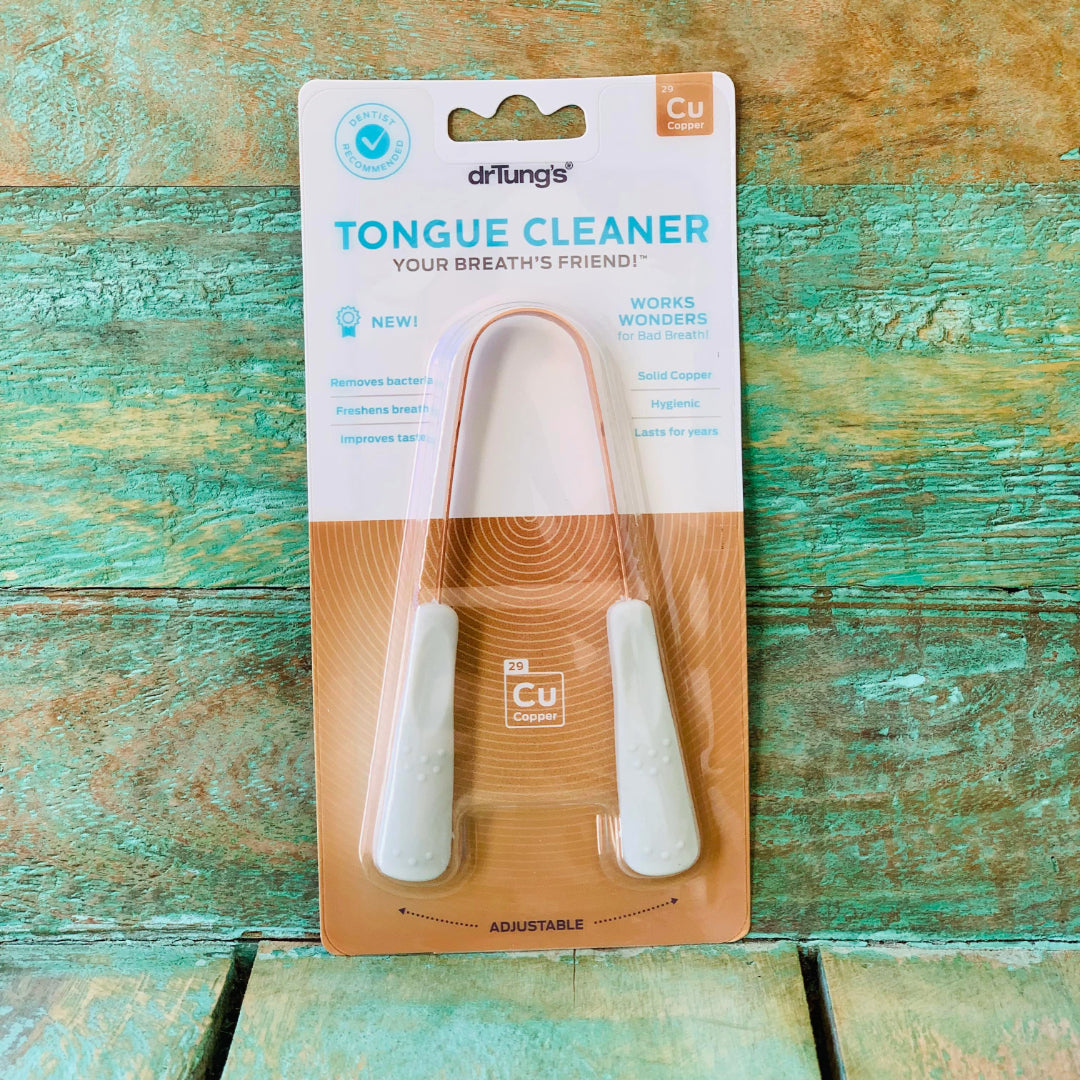How is your tongue looking?
November 22, 2024 2 min read

Are you using a tongue cleaner daily?
If not yet, this would be a great part of the Dinacharya (daily Ayurvedic routine) to implement in your life.
Scraping your tongue is called jihva nirlekhana, Ayurveda recommends scraping of the tongue (jihva) not brushing it.
Brushing stimulates the buds but does not clean them. Scraping the tongue properly is like combing hair - it should be done gently. If you press or scrape your tongue too hard this will cause bleeding and too softly it will be ineffective. A good tongue cleaner should not feel scratchy when using it.
Ayurveda recommends the use of a silver or copper scraper, as silver lowers pitta and heat and copper reduces the congestive build up of kapha and counters the inflammation seen in pitta.
Tips:
- Use a tongue scraper rather than a brush to clean your tongue and taste buds
- Use a silver, copper or stainless steel rather than a plastic one.
- Use daily, best mornings before breakfast.
- Do oil pulling with black seed sesame oil afterwards or hold the sesame oil in your mouth.
- Rinse your mouth with warm water
The oral cavity contains between 3000-10000 taste buds in most adults. Ayurveda conceives taste differently from the way these are defined in modern science. Modern science knows five tastants (taste provoking chemical molecules that are dissolved in ingested liquids or saliva): sweet, sour, salty, bitter and umami.
Ayurveda believes that every morsel, wether it is food, medicines, mineral, plants or animal is made of the five elements (panchamahabhutas). These elements combine in pairs to produce a taste. Ayurveda explains about Shadrasa (six tastes).
- Madhura (sweet)
- Amla (sour)
- Lavana (salty)
- Katu (pungent)
- Tikta (bitter)
- Kashayam (astringent)
Have you got a favourite taste? Ayurveda recommends to incorporate all 6 taste for a wholesome satisfying meal.
With love from Lakshmi Ayurveda.
Happy Monday 💕
If you learn more about Ayurvedic perspective of tongue analysis, we highly recommend our tongue analysis Ebook!
A sloka from Sushruta Samhita (classical Ayurvedic text)
Jihva-nirlekhanam raupyam sauvarnam varksameva cha|
Tanmalapaharam sastam Module slaksnam dasangulam ||13||
Mukha-vairasya daurgandhya-sophajadyaharam sukham|
Danta-dardhyakaram rucyamsneha-ganusha dharanam||14||
To scrape the tongue, use an instrument of silver, gold, iron or the strong twig of a tree that is soft, smooth, ten fingers long and serves to clean ||13||
This removes bad tastes and odour in the mouth, cures oedema, stiffness of the tongues and returns the sense of taste. Holding oil still in the mouth strengthens and whitens the teeth.||14||
Su. Sa Chi 24:13-14
Subscribe
Sign up to get the latest on sales, new releases and more …

